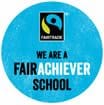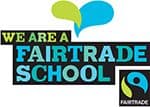S3 Practical Cookery
Course Overview
This is a practical course, supported by related theory. It enables learners to develop Cookery related knowledge, understanding and skills. Pupils will develop practical skills and knowledge in food preparation techniques, processes and safe hygienic practices.
Throughout S3 our pupils work on level 3 and level 4 experiences and outcomes in order to prepare for the appropriate National Qualification in S4. This Practical Cookery course is designed to offer development of practical skills and understanding ingredients in food preparation and cookery. Pupils will learn food preparation skills and develop a knowledge of health, food, nutrition and dietary needs.
S3 Unit 1 – Cookery Skills, Techniques and Processes
This unit aims to enhance pupils’ food preparation and cookery skills which allows them to become competent in food preparation techniques while carrying out a range of cookery processes.
S3 Unit 2 – Understanding and Using Ingredients
This unit aims to enhance pupils’ knowledge and understanding of ingredients.
S3 Unit 3 – Organisational Skills for Cooking
This unit aims to allow pupils’ to develop the ability to follow recipes; to plan, produce and cost dishes and work safely and hygienically.
S3 Unit 4 – Food Hygiene
Pupils will sit the REHIS Elementary Food Hygiene Certificate, which is a industry recognised food hygiene qualification.
Attendance: Two periods a week.
Methodology
Much learning takes place during active lessons where the class view teacher-led cookery demonstrations and they are then encouraged to use recipes to complete a cookery task. These tasks help pupils to learn about cookery techniques, as well as topics relating to food, nutrition and equipment through a combination of individual work and cooperative group work.
Pupils are encouraged to develop their own recipes through design and make projects where pupils can work on their own or as part of a team. Various formative assessment strategies are used to give pupils the opportunity to demonstrate and improve their knowledge, practical skills and skills for learning, life and work. Both written and practical work is evaluated by peer marking as well as by the class teacher. Individually, pupils are encouraged to develop their own personal skills and record these in their pupil planners.
Assessment
Pupils will be assessed within the framework of the significant aspects of learning in, through and about food and health across the three lines of development – Nutrition; Safe and hygienic practices; Food and the consumer – in addition to food and textile contexts within the technologies. There are six significant aspects of learning:
- The Food Experience
- Developing Healthy Food Choices
- Nutritional Needs
- Keeping Safe and Hygienic
- The Journey of Food
- Food and Textile Technologies
Pupils are periodically assessed throughout the year. These assessments can be written, observed through practical work which can be assessed by either a teacher, other pupils or the pupil themselves. Learner’s conversations will take place at key points during the S3 course. This is an opportunity for pupils to discuss with staff what their strengths and weaknesses are within the course work. It allows them to formulate an action plan to support each student’s progress and achievement of a level.
Based upon progress and achievement of levels, pupils will then go forward to sit either National 3, 4 or National 5 Qualifications in S4.
The literacy element of the course is assessed through the pupil’s development of recipes and understanding of ingredients. Numeracy is assessed in their understanding of weighing, measuring and timings.
Recording & Reporting
A continuous process of discussion of both practical and theory work is an essential part of the learning and teaching process. Pupils are encouraged to review each lesson using the traffic lighting system in their Pupil Planner in order to identify and record their strengths as well as areas requiring development.
All of the students in Practical Cookery carry out a learner’s conversation at appropriate times of year. This is an opportunity for pupils to discuss with staff what their strengths and weaknesses are within the six key areas of:
- The Food Experience
- Developing Healthy Food Choices
- Nutritional Needs
- Keeping Safe and Hygienic
- The Journey of Food and Food and Textile Technologies.
Students are able to identify and record next steps in their learning journey within their work folders.
Reporting to parents is in line with the school calendar of tracking, reporting and parent evenings.
Resources
Expectations in the Kitchen
- Perseverance, maturity and an awareness of Health & Safety in a kitchen environment is essential.
- Pupils should wear all necessary safety clothing and equipment, behave in a manner appropriate to the working environment and use equipment safely, show respect and consideration for other pupils and for the class teacher.
- It is important to note that good attendance is essential as most work is completed in the kitchen area.
Useful Websites
www.sfdf.org.uk
www.foodafactoflife.org.uk
www.rehis.com
www.foodindustrycareers.co.uk
www.futurechef.uk.net/
Food Costing
Details about payment will be given to parents/carers via a letter home.





